Let’s dig into the Mediterranean Diet for gut health today.
Even though I don’t follow any one specific diet these days, I’m obsessed with learning about every diet out there in order to craft the best and most effective one for both gut health and gut healing.
There are diets which I believe do nothing for the gut – i.e. the SAD (Standard American Diet) so I don’t focus a lot of my time researching it.
However, almost every single “diet” out there has a benefit.
And while I do not believe that there is a single “best” diet that will help any and every single condition, including IBS and/or IBD, I do believe that many diets have bits and pieces we should extract for our own plates.
With that said, it’s important for me to continue studying different diets and eating patterns.
And then to share this information with you.
What is the Mediterranean Diet?
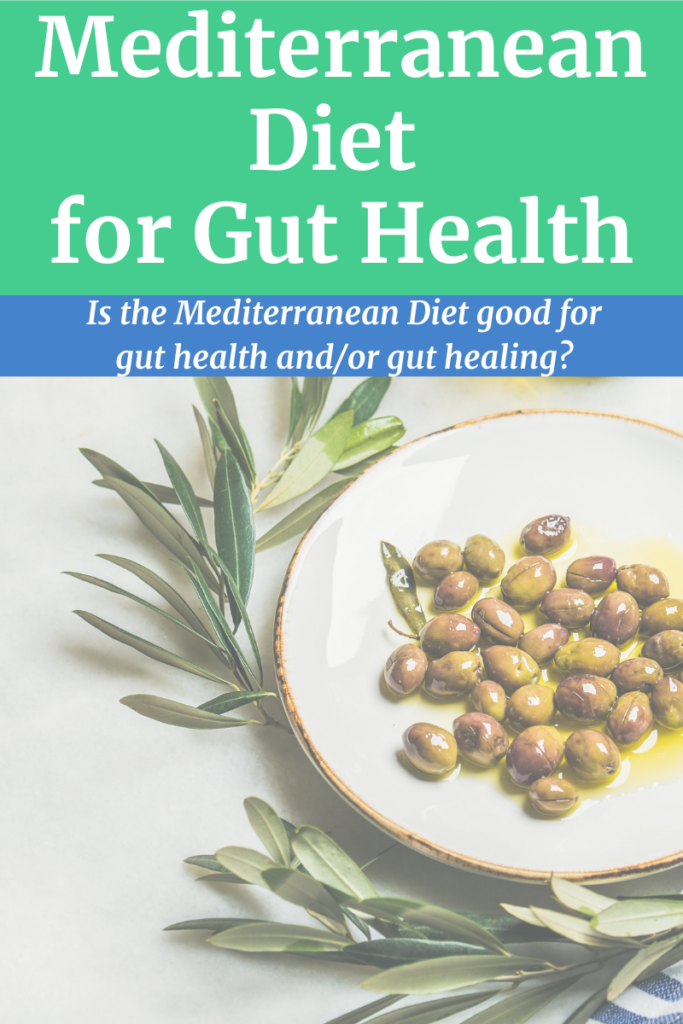
I distinctly remember studying the Mediterranean Diet while at The Institute for Integrative Nutrition.
After studying it, I thought it was great on many levels which you’ll discover throughout this post.
According to Mayo Clinic, the Mediterranean Diet is a heart-healthy eating plan.
This is based off its roots.
Interest in the Mediterranean diet began in the 1960s with the observation that coronary heart disease caused fewer deaths in Mediterranean countries, such as Greece and Italy, than in the U.S. and northern Europe. Subsequent studies found that the Mediterranean diet is associated with reduced risk factors for cardiovascular disease.
To summarize the diet:
- Plant, not meat-based
- Healthy fats are prioritized
- Daily consumption of vegetables, fruits, whole grains
Mediterranean Diet Foods to Enjoy
- vegetables
- fruits
- nuts
- seeds
- legumes
- potatoes
- whole grains
- breads
- herbs
- spices
- fish
- seafood
- extra virgin olive oil
- poultry
- eggs
- cheese
- yogurt
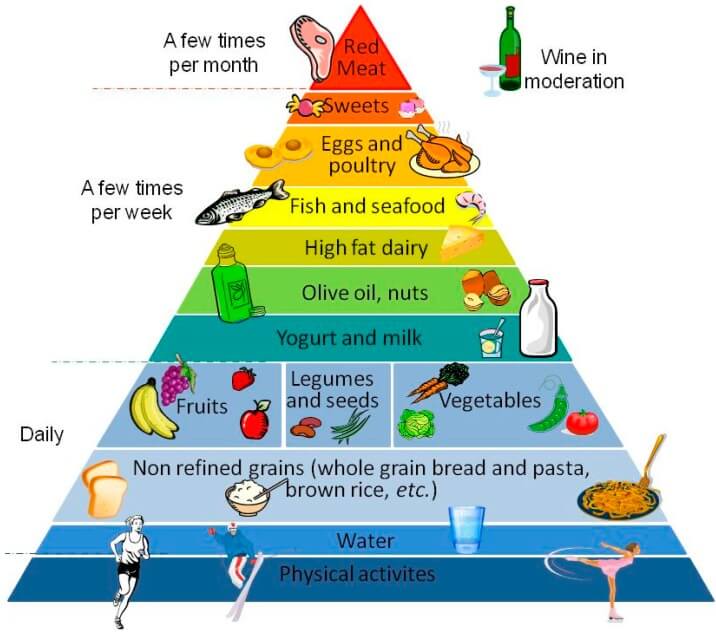
Mediterranean Diet Foods to Rarely Eat and/or Not Consume at All
- red meat
- sugar-sweetened beverages
- added sugars
- processed meat
- refined grains
- refined oils
- other highly processed foods
Sources: HERE, HERE, and HERE.
Mediterranean Diet for Gut Health
Click HERE to save this information for later.
I give the Mediterranean Diet for gut health an A+, if you want my honest opinion.
Top 3 reasons I love the Mediterranean Diet for Gut Health
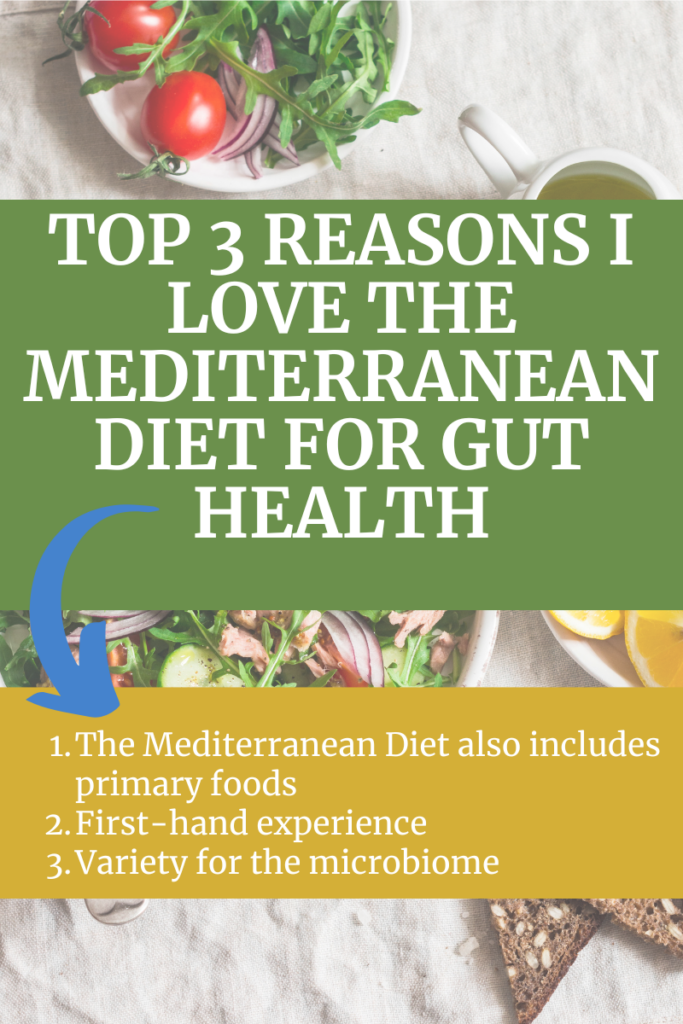
1] The Mediterranean Diet also includes primary foods
According to Mayo Clinic,
Other important elements of the Mediterranean diet are sharing meals with family and friends, enjoying a glass of red wine and being physically active.
2] First-hand experience
If you remember, I’ve been to Italy.
Upon returning from Italy, I wrote Kilometer Zero.
Read that post again – this post reflects so much of what I’m referring to in this article.
3] Variety for the Gut Microbiome
Growing evidence suggests that dietary diversity has been lost during the past 50 years and dietary choices that exclude food products from animals or plants will narrow the GI microbiome further.
The Mediterranean Diet doesn’t limit entire food groups as many other diets do.
Can I try the Mediterranean diet during gut healing?
Only you will know the answer to this question, but do remember that gut health and gut healing are different.
Listen, all the research in the world about how this diet is great for the microbiome, superior for the heart, etc. doesn’t and won’t matter if you feel miserable on it.
The reason the Mediterranean Diet might not be for you during gut healing is the same reason I was a Whole30 Dropout.
Let’s use SIBO as an example.
Fruits, legumes, seeds, vegetables, and grains might leave you miserable on a daily basis if your SIBO is active.
In this case, strictly following the Mediterranean Diet just because it’s a great choice for overall gut health would not be my recommendation.
That said, are there ways you could incorporate the Mediterranean Diet into a SIBO-healing protocol? Absolutely.
If you have Reasonable SIBO, you can apply the graphics to many of the “superior” food categories.
Here are three taken from Reasonable SIBO (there are 300+ total):
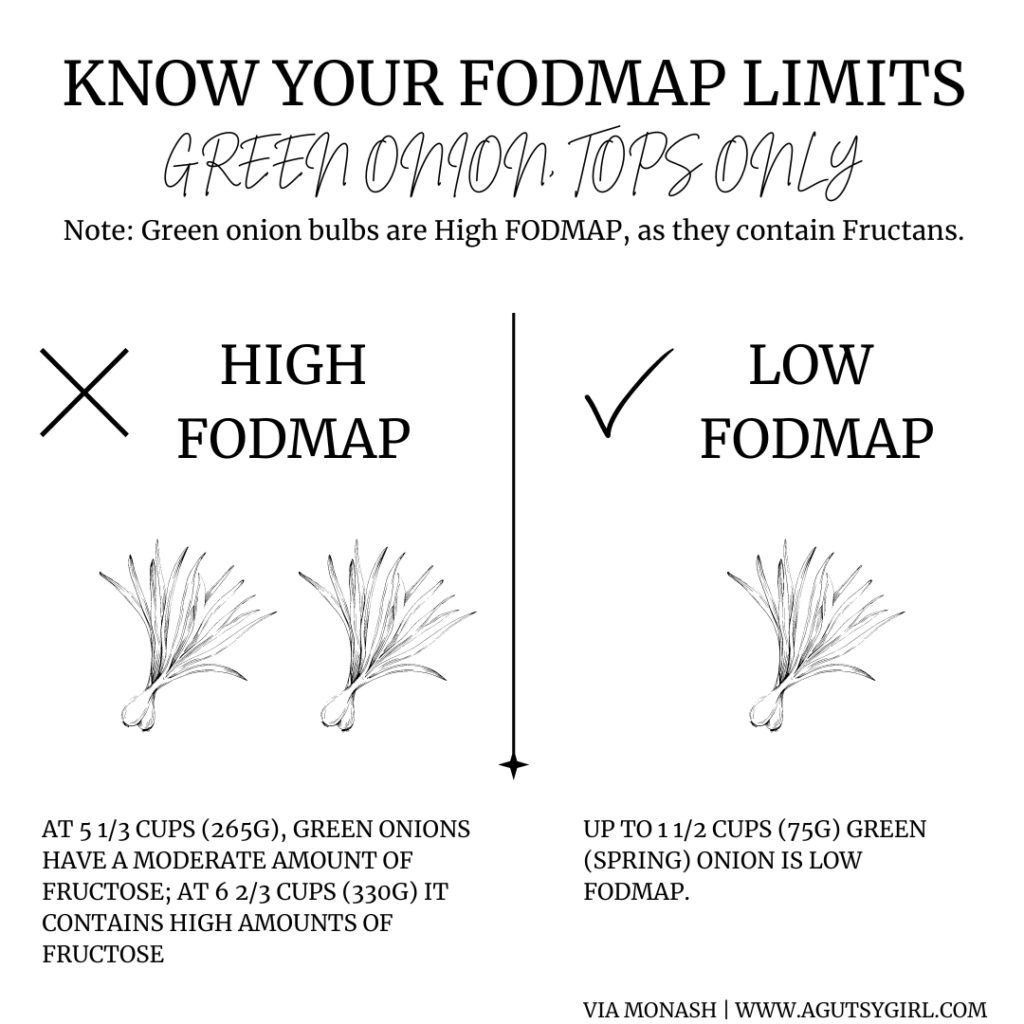
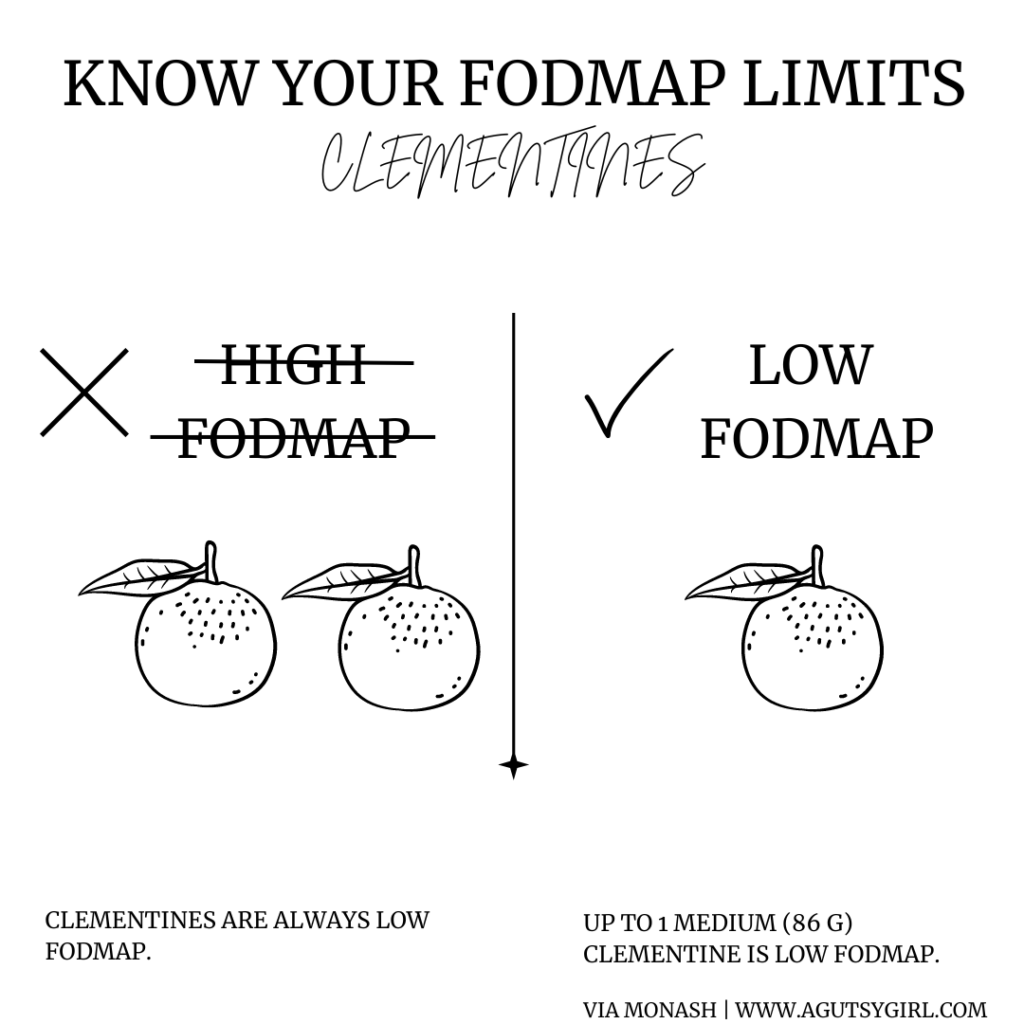
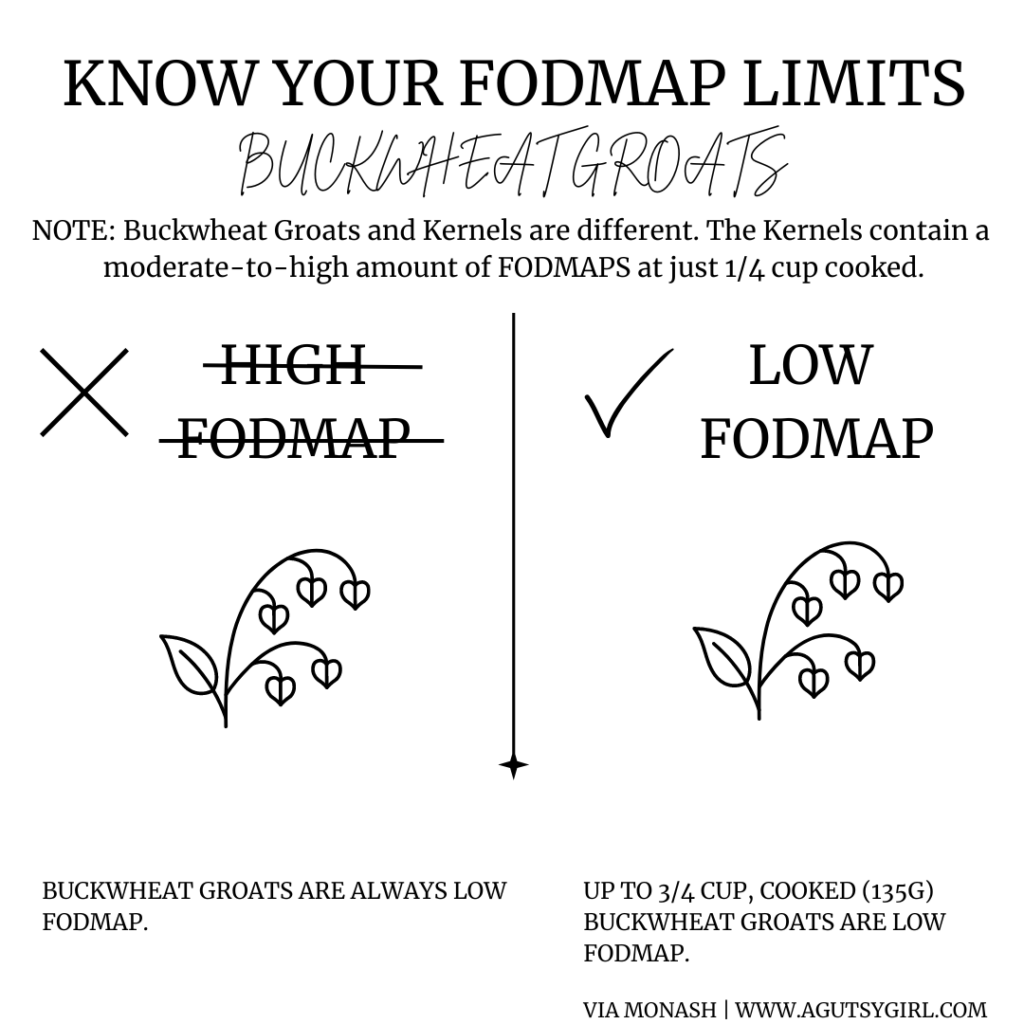
Other Considerations
Here are some other things to consider when deciding whether or not the Mediterranean Diet (or parts of it) are right for you on this phase of your journey:
1] Red meat debate
Especially for certain conditions, you might need more red meat while healing.
The red meat debate will be never-ending; good or bad, bad or good?
You’ll find evidence on both sides of the coin.
Choose a high-quality red meat and have it more than a few times a month if that’s what you need.
2] Westernized
In America, we can oftentimes look at a list like this and completely misunderstand it.
Actually, that almost always happens.
Bread = any bread, yogurt = Activia, and cheese = the main daily food item.
But this is not what they actually practice in Italy.
The bread is bought fresh from a local baker, daily.
And the yogurt is not plump full with additives.
Their cheese is incredible delicious, and eaten not as the main meal.
3] No Villains
While the Mediterranean Diet says to limit (or not eat at all) sweets and other like-foods, they definitely do not vilify them.
If you follow any specific diet more custom to the US (Paleo, Whole30, AIP, Vegan, etc.), shame and guilt oftentimes accompany certain foods and/or food groups.
We could learn a lot from this aspect of the diet.
In the end, it all comes back to the plate you want and need to create for yourself.
Take the best, and most applicable pieces, from the Mediterranean Diet and leave what doesn’t serve you.
If you liked this post, check out:
Xox,
SKH
🤰 bloating be gone! weight loss through optimal gut health for women
💃ʜᴇᴀʟ ʏᴏᴜʀ ɢᴜᴛ. ʜᴇᴀʟ ʏᴏᴜʀ ʟɪfe.
🫶🏻 founder gutbyome.com





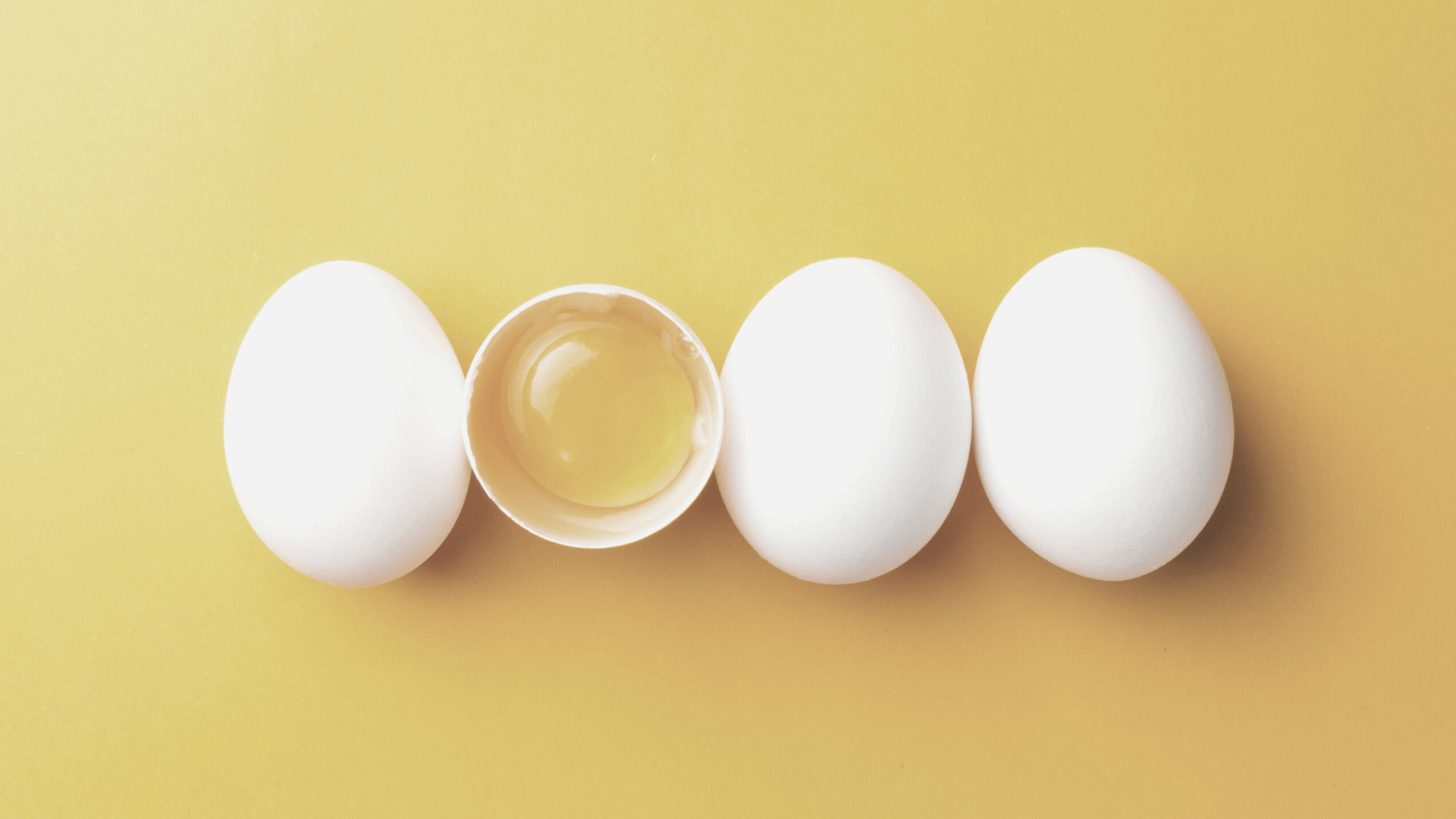
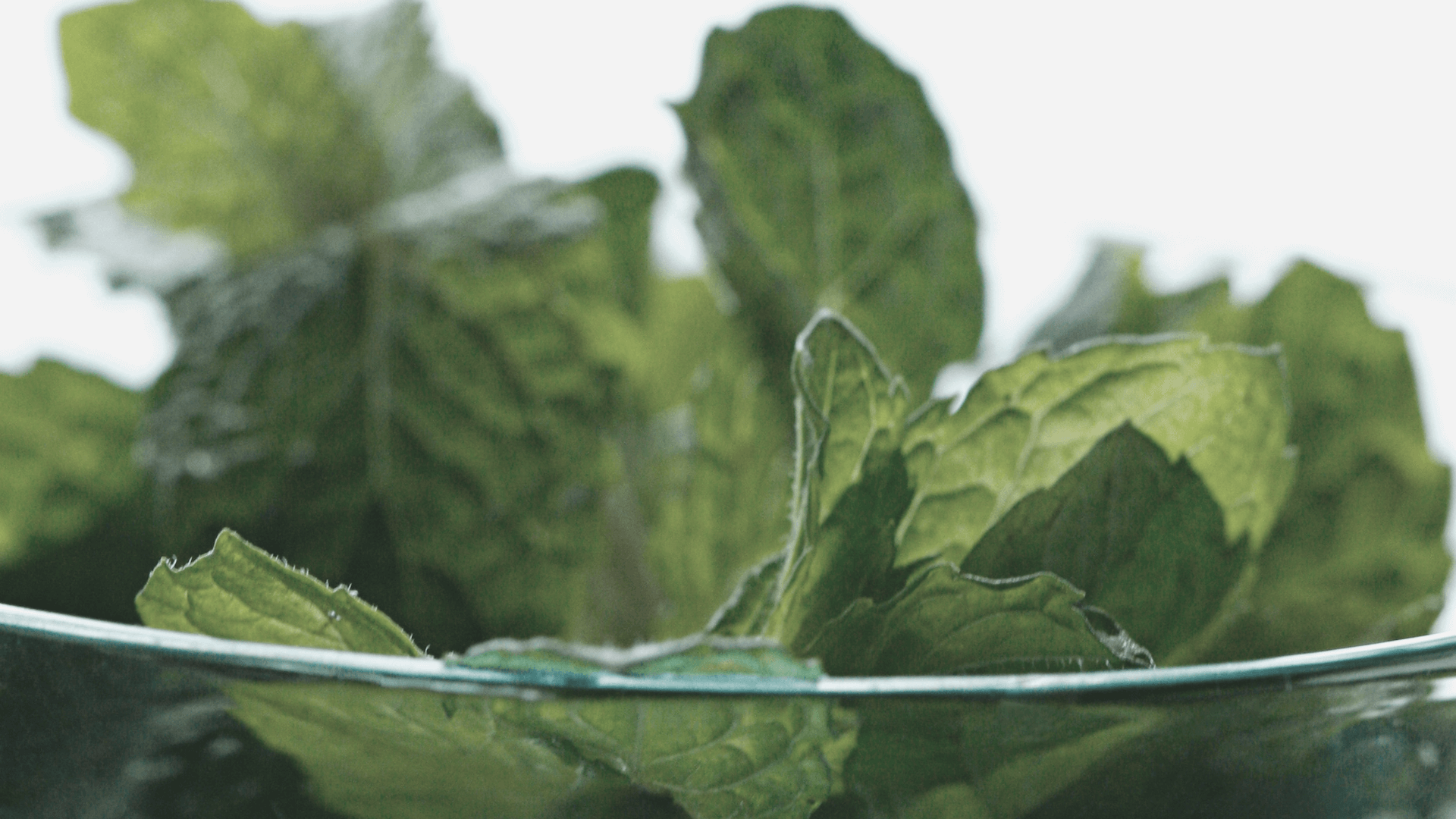
Hi Sarah,
Great piece on the Mediterranean diet and lifestyle. In the book, Wild Mediterranean, The Age-old, Science-new Plan For a Healthy Gut (Penguin Random House) there are over 150 research citations that link the ancestral Mediterranean diet to gut health.
In good health,
Stella
Thanks for sharing, Stella!